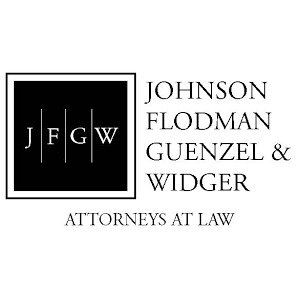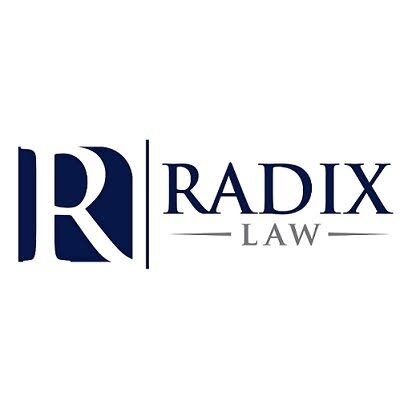Best Financial Services Regulation Lawyers in United States
Share your needs with us, get contacted by law firms.
Free. Takes 2 min.
Or refine your search by selecting a city:
List of the best lawyers in United States
About Financial Services Regulation Law in United States
Financial Services Regulation in the United States is a complex body of law designed to oversee and manage the activities of financial institutions such as banks, investment companies, brokerage firms, and insurance companies. It is intended to maintain the safety and soundness of financial institutions, protect consumers, and ensure fair and efficient markets. Key regulatory bodies include the Securities and Exchange Commission (SEC), the Federal Reserve, the Office of the Comptroller of the Currency (OCC), and the Consumer Financial Protection Bureau (CFPB), among others. The regulation is guided by several federal statutes such as the Dodd-Frank Act, the Securities Exchange Act, and the Investment Company Act, providing a framework for financial institutions to operate securely and ethically.
Why You May Need a Lawyer
Individuals and businesses may require legal assistance in Financial Services Regulation for a variety of reasons. Commonly, legal help is sought when: - Financial institutions face compliance issues with existing regulations. - Investors need guidance on regulatory requirements when entering new markets or launching new products. - Consumers face predatory financial products or practices and require legal advice to understand their rights. - Individuals or entities are involved in mergers and acquisitions where due diligence and compliance with financial regulations are critical. - There are disputes regarding interpretations of specific financial regulations.
Local Laws Overview
The regulatory landscape for financial services in the United States is governed by both federal and state laws. At the state level, each state may have its own securities regulator and banking laws that complement federal regulations. A key aspect of the financial regulatory framework is the dual banking system, allowing banks to be chartered at both the state and federal levels. Additionally, state consumer protection laws may also apply to financial institutions operating within their boundaries. Understanding the intersection of federal standards with state-specific rules is essential for compliance and operational integrity.
Frequently Asked Questions
What is the role of the SEC in financial regulation?
The SEC is primarily responsible for enforcing federal securities laws, regulating the securities industry, and ensuring the protection of investors.
How does the Dodd-Frank Act impact financial regulation?
The Dodd-Frank Act introduced significant changes to financial regulation with areas focusing on improving accountability and transparency, ending "too big to fail," and protecting consumers from abusive financial services practices.
What is the Consumer Financial Protection Bureau?
The CFPB is a federal agency created to ensure consumer protection in the financial sector, particularly in areas like mortgages, credit cards, and financial products and services.
Can a financial services lawyer assist with regulatory compliance?
Yes, these lawyers provide expertise in navigating complex regulatory requirements, ensuring that financial institutions comply with applicable laws and regulations.
What happens if a financial institution fails to comply with regulations?
Failure to comply can result in severe penalties, including hefty fines, restrictions, or even closure of operations, in addition to reputational damage.
Are there specific regulations for fintech companies?
Fintech companies must comply with existing financial services regulations, but they also face additional scrutiny due to technological implications on financial transactions and data privacy.
What is the significance of the Volcker Rule?
The Volcker Rule is a part of the Dodd-Frank Act that restricts United States banks from making certain kinds of speculative investments that do not benefit their customers.
How do state laws interact with federal financial regulations?
State laws can complement, enhance, or even impose additional requirements beyond federal regulations, and financial institutions must often comply with both.
Why are financial institutions heavily regulated?
Heavy regulation aims to ensure the stability and integrity of the financial system, protect consumers, and prevent financial crises.
What is the role of the Federal Reserve in financial regulation?
The Federal Reserve plays a critical role in regulating banks, maintaining financial stability, and implementing monetary policy to manage the economy's growth and inflation.
Additional Resources
There are several resources and organizations that can be helpful if you need guidance on Financial Services Regulation: - The website of the Securities and Exchange Commission (SEC) - The Federal Reserve's Financial Supervision and Regulation to understand banking oversight - The Consumer Financial Protection Bureau (CFPB) for consumer-related queries - National Association of State Credit Union Supervisors
Next Steps
If you need legal assistance in Financial Services Regulation, consider reaching out to a specialized attorney with a strong background in finance law. Start by researching reputable law firms or individual practitioners in your area, then schedule a consultation to discuss your specific needs. It is advisable to prepare and gather all relevant documents or information related to your financial issue to assist your attorney in providing the best advice and strategy for your situation.
Lawzana helps you find the best lawyers and law firms in United States through a curated and pre-screened list of qualified legal professionals. Our platform offers rankings and detailed profiles of attorneys and law firms, allowing you to compare based on practice areas, including Financial Services Regulation, experience, and client feedback.
Each profile includes a description of the firm's areas of practice, client reviews, team members and partners, year of establishment, spoken languages, office locations, contact information, social media presence, and any published articles or resources. Most firms on our platform speak English and are experienced in both local and international legal matters.
Get a quote from top-rated law firms in United States — quickly, securely, and without unnecessary hassle.
Disclaimer:
The information provided on this page is for general informational purposes only and does not constitute legal advice. While we strive to ensure the accuracy and relevance of the content, legal information may change over time, and interpretations of the law can vary. You should always consult with a qualified legal professional for advice specific to your situation.
We disclaim all liability for actions taken or not taken based on the content of this page. If you believe any information is incorrect or outdated, please contact us, and we will review and update it where appropriate.
Browse financial services regulation law firms by state in United States
Refine your search by selecting a state.

















